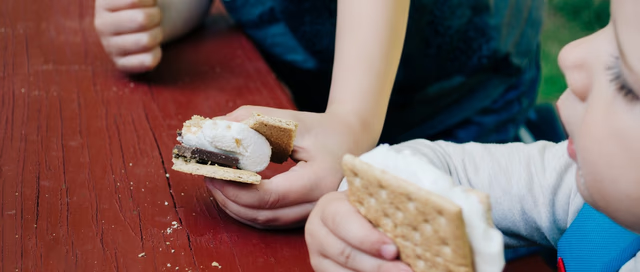Type 2 diabetes
Peer reviewed by Dr Krishna Vakharia, MRCGPLast updated by Dr Colin Tidy, MRCGPLast updated 26 Apr 2023
Meets Patient’s editorial guidelines
In this series:Type 2 diabetes treatmentType 2 diabetes diet
Type 2 diabetes can occur at any age, including during childhood, but it occurs mainly in people aged over 40. The first-line treatment is diet, weight control and physical activity.
The good news is that many people can stay well using these lifestyle measures. However if the blood sugar (glucose) level remains high then tablets to reduce the blood glucose level are usually advised. Insulin injections are needed in some cases. Other treatments include reducing blood pressure if it is high, lowering high cholesterol levels, and also other measures to reduce the risk of complications.
In this article:
Continue reading below
What is type 2 diabetes?
Playlist: What is Diabetes?
2 videos
What is type 2 diabetes?
Dr Partha Kar, FRCP
What is type 2 diabetes?
Dr. Partha Kar, FRCP

How do you explain type 2 diabetes to your child?
Dr. Partha Kar, FRCP
Type 2 diabetes and its symptoms tend to develop gradually (over weeks or months). This is because in type 2 diabetes you still make insulin (unlike in type 1 diabetes). However, you develop type 2 diabetes because:
You do not make enough insulin for your body's needs; or
The cells in your body do not use insulin properly. This is called insulin resistance. The cells in your body become resistant to normal levels of insulin. This means that you need more insulin than you normally make to keep the blood sugar (glucose) level down; or
A combination of the above two reasons.
You can learn more about insulin and blood glucose from our separate leaflet called Diabetes (Diabetes Mellitus).
Type 2 diabetes is much more common than type 1 diabetes.
How common is type 2 diabetes?
Type 2 diabetes develops mainly in people older than the age of 40 but type 2 diabetes is now becoming far more common in children and in young people.
The number of people with type 2 diabetes is increasing in the UK, as it is more common in people who are overweight or obese. It also tends to run in families. Type 2 diabetes is around five times more common in South Asian and African-Caribbean people (often developing before the age of 40 in this group). It is estimated that by 2025 more than 5 million people in the UK will be diagnosed with diabetes.
Playlist: Risks of Diabetes
4 videos
Who is most at risk from type 2 diabetes?
Dr Partha Kar, FRCP
Who is most at risk from type 2 diabetes?
Dr. Partha Kar, FRCP

Is type 2 diabetes hereditary?
Dr. Partha Kar, FRCP

How can I avoid getting a hypo?
Dr. Sarah Jarvis MBE, FRCGP

What can someone with type 1 diabetes do to stop their blood glucose going too high?
Dr. Sarah Jarvis MBE, FRCGP
Other risk factors
Having a first-degree relative with type 2 diabetes. (A first-degree relative is a parent, brother, sister, or child.)
Being overweight or obese.
Having a waist measuring more than 31.5 inches (80 cm) if you are a woman or more than 37 inches (94 cm) if you are a man. Where in your body you store excess weight is important. Central obesity (a big tummy) probably happens because of the effect of insulin pushing excess sugar into abdominal fat cells over the years.
Having pre-diabetes (impaired glucose tolerance). Impaired glucose tolerance means that your blood sugar (glucose) levels are higher than normal but not high enough to have diabetes. People with impaired glucose tolerance have a high risk of developing diabetes and so impaired glucose tolerance is often called pre-diabetes.
Continue reading below
Type 2 diabetes symptoms
How do you know if you have type 2 diabetes?
As already mentioned, type 2 diabetes symptoms often come on gradually and can be quite vague at first. Many people have type 2 diabetes for a long period of time before their diagnosis is made.
The most common type 2 diabetes symptoms are:
Being thirsty a lot of the time.
Passing large amounts of urine.
Tiredness, which may be worse after meals.
The reason why you make a lot of urine and become thirsty is that if your blood sugar (glucose) rises too high (because insulin is not doing its job) the excess sugar leaks into your urine. This pulls out extra water through the kidneys.
As the type 2 diabetes symptoms may develop gradually, you can become used to being thirsty and tired and you may not recognise for some time that you are ill. Some people also develop blurred vision and frequent infections, such as recurring thrush.
However, some people with type 2 diabetes do not have any symptoms if the glucose level is not too high. But, even if you do not have symptoms, you should still have treatment to reduce the risk of developing complications.
Patient picks for Type 2 diabetes
Type 2 diabetes diagnosis
How do you get tested for type 2 diabetes?
A simple dipstick test may detect sugar (glucose) in a sample of urine. However, this is not enough to make a definite diagnosis of type 2 diabetes. Therefore, a blood test called HbA1c is needed to make the diagnosis. The blood test detects the level of glucose in your blood. If the glucose level is high then it will confirm that you have type 2 diabetes.
Some people have to have two samples of blood taken and may be asked to fast. (Fasting means having nothing to eat or drink, other than water, from midnight before the blood test is performed.)
It is now recommended that the blood test for HbA1c can also be used as a test to diagnose type 2 diabetes. An HbA1c value of 48 mmol/mol (6.5%) or above is recommended as the blood level for diagnosing type 2 diabetes. An HbA1c blood test gives an average of how high your blood glucose levels have been over the preceding few months.
In many cases type 2 diabetes is diagnosed during a routine medical or when tests are done for an unrelated medical condition.
Continue reading below
Type 2 diabetes complications
Short-term complication - a very high glucose level
This is rare with type 2 diabetes. It is more common in untreated type 1 diabetes when a very high level of blood sugar (glucose) can develop quickly. However, a very high glucose level develops in some people with untreated type 2 diabetes. A very high blood level of glucose can cause lack of fluid in the body (dehydration), drowsiness and serious illness which can be life-threatening.
Long-term complications
If your blood glucose level is higher than normal over a long period of time, it can gradually damage your blood vessels. This can occur even if the glucose level is not very high above the normal level. This may lead to some of the following complications (often years after you first develop type 2 diabetes):
Furring, or 'hardening', of the arteries (atheroma). This can cause problems such as angina, heart attacks, stroke and poor circulation.
Kidney damage which sometimes develops into chronic kidney disease.
Eye problems which can affect vision (due to damage to the small arteries of the retina at the back of the eye).
Foot problems (due to poor circulation and nerve damage).
Impotence (again due to poor circulation and nerve damage).
Other rare problems.
The type and severity of long-term complications vary from case to case. You may not develop any at all. In general, the nearer your blood glucose level is to normal, the less your risk of developing complications. Your risk of developing complications is also reduced if you deal with any other risk factors that you may have, such as high blood pressure.
It has been found that people with type 2 diabetes are more at risk of periodontitis. This is a condition that destroys the tissues supporting your teeth. Untreated, this could lead to tooth loss. It can start with gingivitis which is an inflammation of the gums. Left untreated, this leads to periodontitis and further severe gum conditions.
At your annual review, your doctor will remind you to have checks with your dentist. If you do have periodontitis, managing this illness can improve blood sugar control so it is best to keep those regular reviews with your dentist.
Complications of type 2 diabetes treatment
Medications for type 2 diabetes, like most other medications, can cause side-effects in some people. You can find out more about diabetes medications and their side-effects from our separate leaflet called Type 2 Diabetes Treatment.
However, one important side-effect which can affect people taking insulin and/or certain diabetes tablets is hypoglycaemia (often called a 'hypo'). This occurs when the level of glucose becomes too low, usually under 4 mmol/L. Not all tablet medicines used for diabetes can cause a hypo - for example, metformin does not cause this.
A hypo may occur if you have too much diabetes medication, have delayed or missed a meal or snack, or have taken part in unplanned exercise or physical activity. You can find out more about the symptoms and treatments of hypos from our separate leaflet called Hypoglycaemia (Low Blood Sugar).
Until about 20 years ago, the medication options for treatment of type 2 diabetes were fairly limited. Insulin, along with a group of medicines called the sulfonylureas, can cause hypos (as well as weight gain). In the last 20 years, as newer medication has been developed, many people do not need to take sulfonylureas. In fact, more and more people never need to take insulin as newer agents offer more options for type 2 diabetes treatment.
Note: hypoglycaemia does not occur if you are treated with diet alone.
What are the aims of type 2 diabetes treatment?
If you have type 2 diabetes, you may think that keeping your blood sugar (glucose) at normal levels is all that matters. In fact, while that's important, there's more to treatment than this.
Treatment aim 1 - keeping your blood sugar (glucose) level at normal levels
Lifestyle changes are an essential part of treatment for all people with type 2 diabetes, regardless of whether or not they take medication.
Many people with type 2 diabetes can reduce their blood glucose (and HbA1c) to a target level with changes to their diet, weight and exercise levels. However, if the blood sugar (or HbA1c) level remains too high after a trial of these measures for a few months, then medication is usually advised.
Diet, weight control and physical activity
Diet. What you eat is absolutely central to your blood glucose control, as well as your general health. Please read our separate leaflet called Type 2 Diabetes Diet for more information. Your practice nurse or dietician can give you more information and support.
Lose weight if you are overweight. Getting to a perfect weight is unrealistic for many people. However, losing some weight if you are obese or overweight will help to reduce your blood glucose and blood pressure levels (and have other health benefits too). Recent evidence from Professor Taylor, Newcastle University, has shown that weight loss alone can put diabetes into drug-free remission in at least a third of patients.
Do some physical activity regularly. If you are able, a minimum of 30 minutes' brisk walking at least five times a week is advised. Anything more vigorous and more often is even better - for example, swimming, cycling, jogging, dancing. Ideally, you should do an activity that gets you at least mildly out of breath and mildly sweaty. You can spread the activity over the day - for example, two fifteen-minute spells per day of brisk walking, cycling, dancing, etc. Regular physical activity also reduces your risk of having a heart attack or stroke.
Medication
Medication is not used instead of a healthy diet, weight control and physical activity - you should still do these things as well as take medication. See our separate leaflet called Type 2 Diabetes Treatment for more details.
How is the blood glucose level monitored?
The blood test that is mainly used to keep a check on your blood glucose level is called the HbA1c test. This test is commonly done every 2-6 months by your doctor or nurse.
The HbA1c test measures a part of the red blood cells. Glucose in the blood attaches to part of the red blood cells. This part can be measured and gives a good indication of your average blood glucose level over the preceding 1-3 months.
Type 2 diabetes treatment aims to lower your HbA1c to below a target level. Ideally, it is best to maintain HbA1c to less than 48 mmol/mol (6.5%). However, this may not always be possible to achieve and your target level of HbA1c should be agreed between you and your doctor.
If your HbA1c is above your target level then you may be advised to step up treatment (for example, to increase a dose of medication) to keep your blood glucose level down.
Some people with diabetes check their actual blood glucose level regularly with a blood glucose monitor. If you are advised to do this then your doctor or nurse will give you instructions on how to do it.
Continuous glucose monitoring (CGM)
The National Institute for Health and Care Excellence (NICE) has recommended that CGM should be offered to some people using insulin several times a day. They recommend that your specialist team should offer this if:
You have repeated or severe episodes of hypoglycaemia ('hypos').
You have impaired hypoglycaemia awareness, where you don't recognise the early symptoms of hypos.
You have a condition or disability for which you can't use regular finger-prick testing.
You need to measure your blood glucose at least eight times a day.
Treatment aim 2 - to reduce other risk factors
You are less likely to develop complications of type 2 diabetes if you reduce any other risk factors. These are briefly mentioned below - see the separate leaflet called Cardiovascular Disease (Atheroma) for more details. Although everyone should aim to cut out preventable risk factors, people with diabetes have even more of a reason to do so.
Keep your blood pressure down
It is very important to have your blood pressure checked regularly. The combination of high blood pressure and diabetes is a particularly high risk factor for complications. Even mildly raised blood pressure should be treated if you have type 2 diabetes. Medication, often with two or even three different medicines, may be needed to keep your blood pressure down but remember weight loss and exercise can really help with this too.
See the separate leaflet called Diabetes and High Blood Pressure for more details.
If you smoke - now is the time to stop
Smoking is a major risk factor for complications. You should consult your practice nurse or attend a smoking cessation clinic - it's much easier to quit with support. As well as expert help and advice, medication or nicotine replacement therapy (nicotine gum, etc) may help you to stop.
Other medication
You will usually be advised to take a medicine to lower your cholesterol level. This will help to lower the risk of developing some complications such as heart disease, peripheral arterial disease and stroke.
Protect your kidneys
Keeping your blood glucose well controlled can reduce your risk of kidney damage. But a group of medications first developed to treat type 2 diabetes can provide added protection against developing and worsening chronic kidney disease.
These medicines, called SGLT-2 inhibitors, are now recommended for everyone with type 2 diabetes who has chronic kidney disease with protein in the urine. This is one of the reasons getting regular kidney checks (see below) is so important.
In fact, some medicines in this class are now used to protect the kidneys in people who have chronic kidney disease but who do not have diabetes.
You can find out more about the SGLT-2 inhibitors in our leaflet on type 2 diabetes treatment.
Treatment aim 3 - monitoring to detect and treat any complications promptly
Most GP surgeries and hospitals have special diabetes clinics. Doctors, nurses, dieticians, specialists in foot care (podiatrists - previously called chiropodists), specialists in eye health (optometrists) and other healthcare workers all play a role in giving advice and checking on progress. Regular checks may include:
Checking levels of blood sugar (glucose), HbA1c, cholesterol and blood pressure.
Ongoing advice on diet and lifestyle.
Checking for early signs of complications - for example:
Eye checks - see more detail below.
Urine tests - which include testing for protein in the urine, which may indicate early kidney problems.
Foot checks - to help prevent foot ulcers.
Other blood tests - these include checks on kidney function and other general tests.
It is important to have regular checks, as some complications, particularly if detected early, can be treated or prevented from becoming worse.
Eye screening
Regular (at least yearly) eye checks can detect problems with the retina (a possible complication of diabetes), which can often be prevented from becoming worse. Increased pressure in the eye (glaucoma) is more common in people with diabetes and can usually be treated.
The National Institute for Health and Care Excellence (NICE) has updated its recommendations on eye screening and treatment in an update of its guidance on type 2 diabetes.
Eye checks usually include taking photographs of the back of your eye (retinal photography) to see whether there are any problems. This needs to be done at a specialist eye screening clinic.
The guidance recommends that:
You should be referred to a specialist local eye screening service as soon as you are diagnosed with type 2 diabetes.
If your eyesight suddenly deteriorates significantly without any obvious explanation, you should be referred to a specialist eye doctor (an ophthalmologist). How urgently you are referred will depend on your symptoms and personal circumstances.
Immunisation
You should be immunised against flu (each autumn) and also against pneumococcal germs (bacteria) - a vaccination just given once. These infections can be particularly unpleasant if you have diabetes.
Further reading and references
- Management of diabetes; Scottish Intercollegiate Guidelines Network - SIGN (March 2010 - updated November 2017)
- Diabetes UK
- Diabetes and Bad Cholesterol Information Prescription; Diabetes UK
- Diabetes (type 1 and type 2) in children and young people: diagnosis and management; NICE Guidelines (Aug 2015 - updated May 2023)
- Type 2 diabetes in adults: management; NICE Guidance (December 2015 - last updated June 2022)
- Information prescriptions - living well; Diabetes UK
- d-Nav insulin management app for type 2 diabetes; NICE Medtech innovation briefing, February 2022
- Diabetes - type 2; NICE CKS, November 2023 (UK access only)
- Type 2 diabetes in adults; NICE Quality standard, March 2023
Article History
The information on this page is written and peer reviewed by qualified clinicians.
Next review due: 24 Mar 2028
26 Apr 2023 | Latest version

Feeling unwell?
Assess your symptoms online for free

